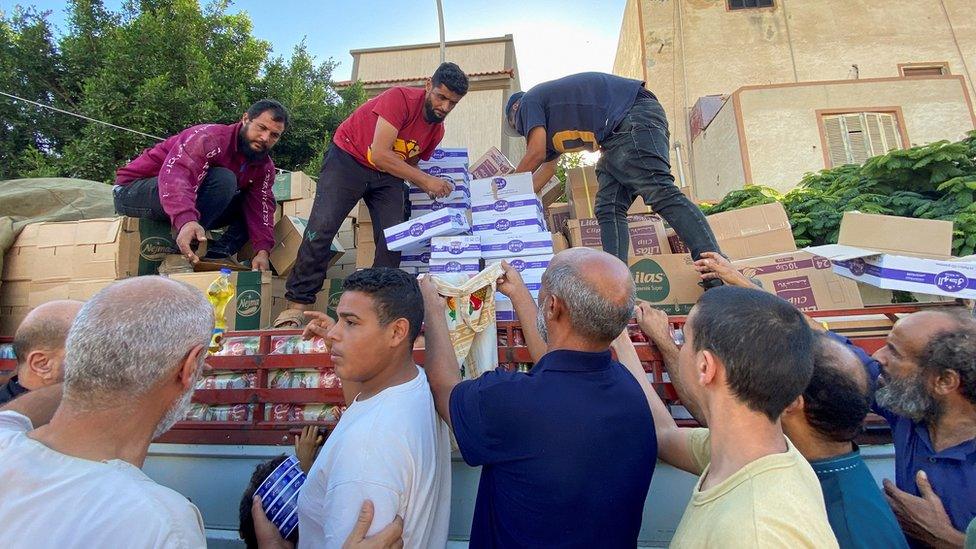Libya floods: The flawed response that increased Derna death toll
- Published
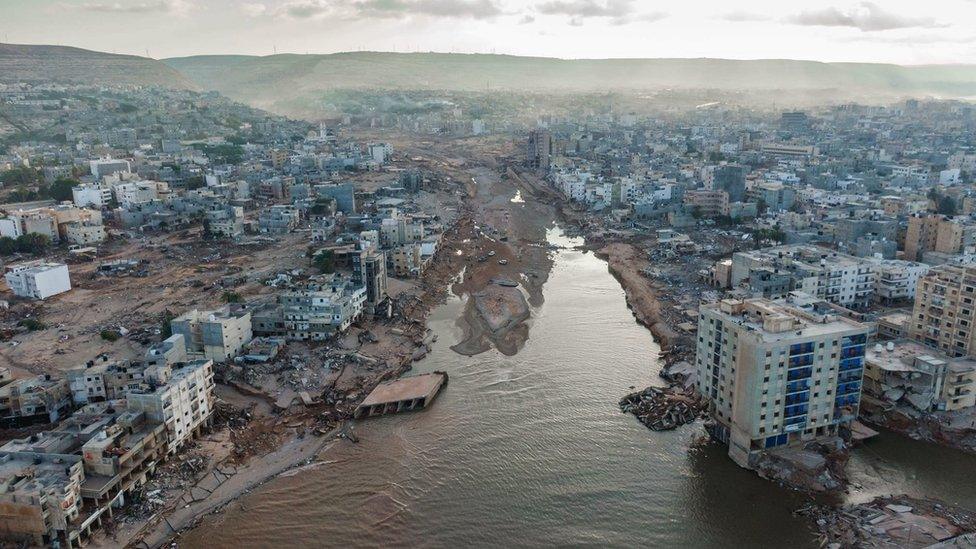
Flooding in Derna devastated residential areas, killing thousands
The devastating floods which killed thousands in eastern Libya a month ago were the result of a destructive force of nature, but BBC Arabic has uncovered evidence that mismanagement by the local authorities led to many deaths that could have been prevented.
There are three main accusations:
Firstly, residents of Derna, the hardest-hit town, say they were told to stay at home rather than being evacuated even though it was known that Storm Daniel was coming.
Secondly, local and regional authorities are accused of failing to address the danger posed by the dams on the Derna riverbed, which runs through the town. Two dams spanning the Derna valley inland from the city burst on 11 September, causing the catastrophic flooding.
Finally, the authorities are accused of hindering the aid effort in the days immediately after the tragedy.
Anger in Derna escalated into protests on 18 September and the home of the mayor - who later resigned - was subsequently burned down.
The death toll remains unknown, with many bodies believed to have been washed out to sea. At least 4,000 people have been confirmed dead and another 10,000 reported missing in a town with a population of about 90,000.
Evacuation failings
Since the fall of long-time Libyan leader Muammar Gaddafi in 2011, the country has been divided between a UN-backed government in the capital, Tripoli, and a rival authority backed by military strongman General Khalifa Haftar, whose forces control eastern Libya, including Derna.
Ahead of the arrival of Storm Daniel, various bodies in the east held emergency meetings and subsequently issued instructions to the region's residents.
These generally focused on the evacuation of coastal and low-lying areas in Derna, and stay-at-home orders for other parts of the city and wider region.
But residents have told BBC Arabic that evacuation efforts were inadequate in a number of respects:
they focused on the wrong part of the city
the warnings did not reach many of the people that needed to hear them
no sufficient provision was made for where evacuated people should shelter
and there were various conflicting stay-at-home orders and curfews.
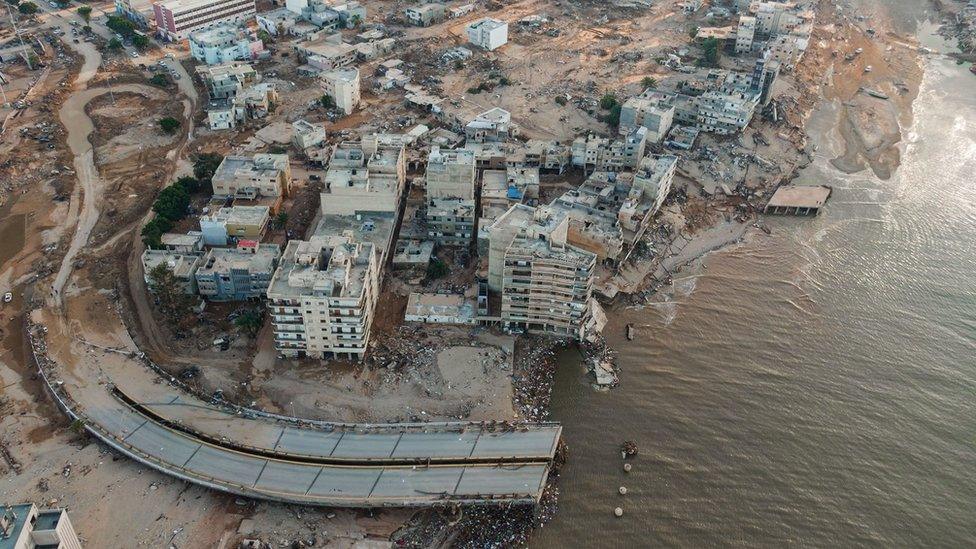
Coastal areas of Derna were devastated by the flood
Residents of the town were generally instructed to stay indoors.
People living in specific areas on the seafront or close to the riverbed were ordered to leave their homes but there was no comprehensive or consistent list of areas to be evacuated.
Local residents told the BBC that some people who were evacuated from the seafront because of fears of rising sea levels were moved to more dangerous areas that were later flooded.
"There were no warnings of possible flooding, just that the sea levels might rise," a local engineer told the BBC. "Only those by the beach were asked to evacuate, but the rest of the city was asked to stay indoors."
The man, who has chosen to remain anonymous In fear of reprisal, lost his wife and two of his sons in the tragedy. He added that just a few hours before the flooding, a force from the interior ministry was going around asking people to stay indoors.
"Many of those that evacuated from the beaches went into central Derna, where they were killed by the later flooding," he said.
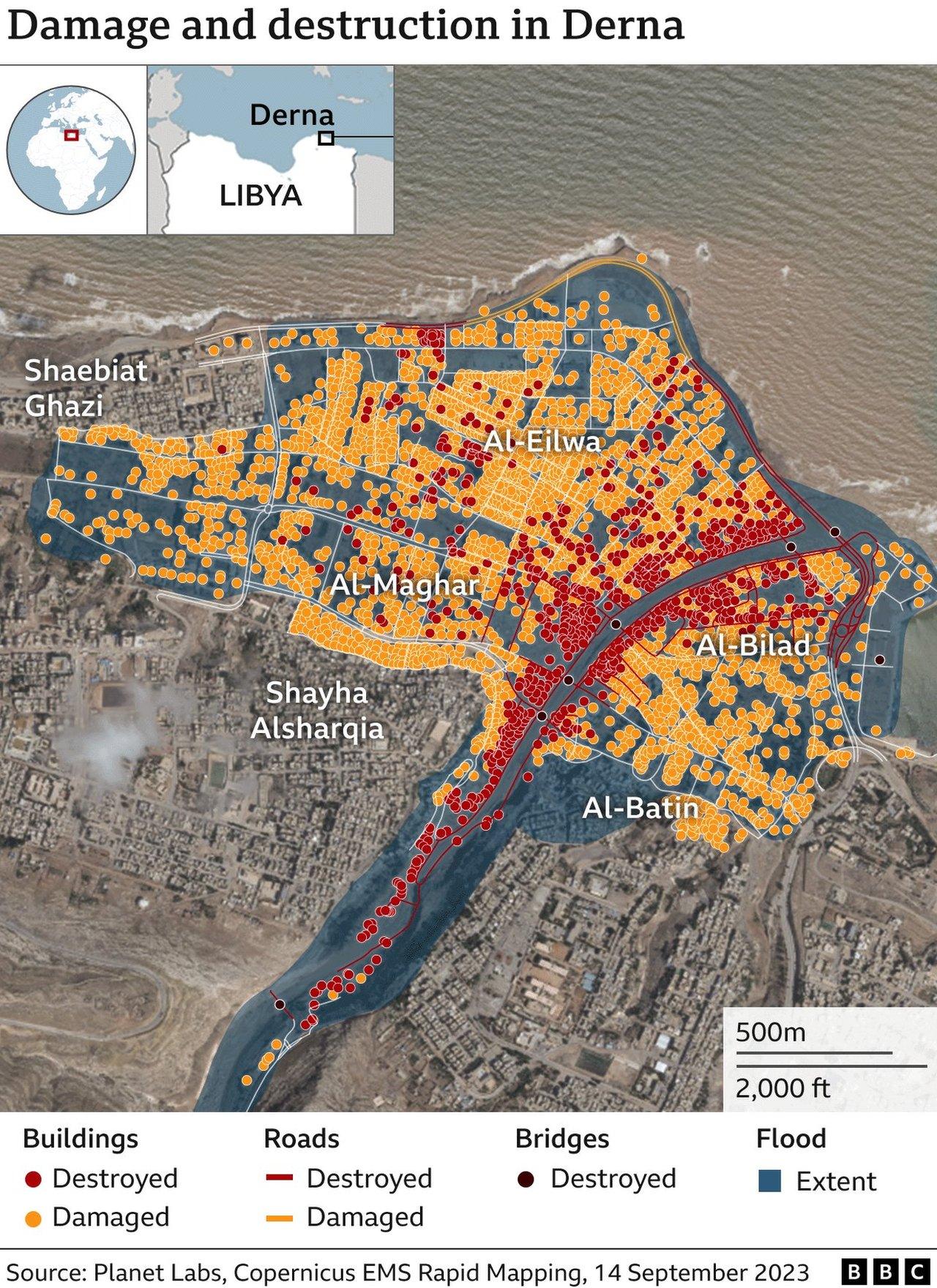
Preparations actually began well in advance of the disaster.
On 9 September - two days before the devastating flood - the eastern government convened an emergency committee meeting and declared the following two days national holidays to encourage people to stay at home.
A curfew was declared in the region from 20:00 that evening and orders were given for the evacuation of "areas near the sea and low-lying areas located in the valleys of Benghazi and the entire eastern region".
The announcements generally called for people to move to "safe places", without specifying where they should go.
On the same day, the mayor of Derna made a similar call to evacuate various seafront and low-lying neighbourhoods.
But by 10 September, online announcements and video statements posted by the Derna police had dropped any mention of evacuation, and were focusing on the curfew and making sure people stayed at home.
Photos geolocated by the BBC show police patrols out on the roads following another official announcement which imposed a curfew "inside the city as a precaution to prevent emergency, especially areas near the beach".
This proclamation came via a Facebook post, and many residents of Derna have complained that television and social media were insufficient means to alert people, especially given the disruption in the aftermath of Storm Daniel.
Red Crescent staff were also active in coastal areas in the days ahead of the flood - videos show them calling on people via megaphone to clear their homes to stay safe from Storm Daniel.
So notable efforts were made to move residents in some areas of the city, but all of these evacuations anticipated that the threat would come from rising sea levels, rather than the failure of infrastructure far inland and the Derna valley flooding.
Failure to heed dam warnings
Derna residents reported hearing a loud blast before the city was engulfed - the failure of one or both of the two dams which had until then been holding back the floodwaters in the valley.
The upper dam had a storage capacity of 1.5 million cubic metres of water, while the lower dam could hold 22.5 million cubic metres.
Each cubic metre of water weighs about one tonne (1,000kg), so the water held back by the dams weighed a total of 24 million tonnes.
As that weight moved downhill, it produced enormous power. Witnesses have said the water was nearly three metres high in places.
Watch: Floods tear through Libyan city of Derna
Public pronouncements by officials in Derna or the eastern government made no reference to the potential overflow or collapse of the two dams serving the city, focusing instead on the dangers of strong winds and potentially rising water levels.
Dr Abdulwanis Ashour, a hydrologist and lecturer at Omar Al-Mukhtar University, told the BBC he had collected data on the condition of the Derna dams for a study published last year, which showed they were not prepared to withstand a storm like Daniel.
He said he had spent years studying the Derna dams and had discovered the presence of numerous cracks and fissures. In his research, he asserted that they would not be able to handle a large amount of rainfall and were at risk of collapse.
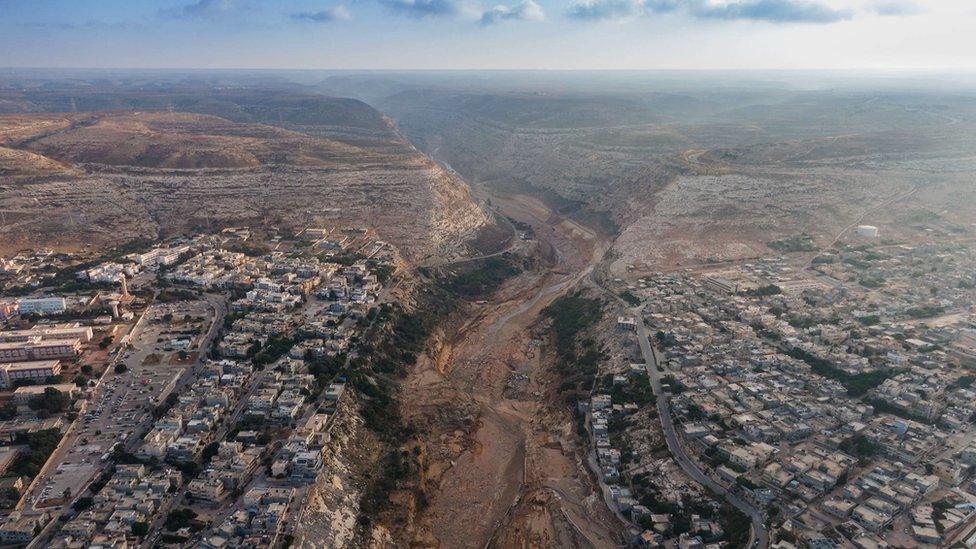
When the dams failed, a vast torrent of water cascaded down the broad valley of the Derna riverbed
Dr Ashour pointed out that studies and reports had been conducted by local and international entities over the years, all of which warned about the condition of the Derna dams and their danger to nearby areas. He affirmed that successive governments were aware of these reports.
On Monday 25 September, Libya's Public Prosecutor's Office, part of the western government, ordered the arrest of 16 officials responsible for managing Libya's dams as part of investigations into negligence regarding dam maintenance and other flood-related work. But it is not clear if any of them have actually been arrested.
Delaying aid delivery
The emergency response of the Derna authorities has also been widely criticised.
In a rare sign of unity in the divided country, pleas for help from the stricken town were answered as a multitude of aid workers immediately set about delivering supplies from cities under the control of the rival government in the west. But these convoys were stopped and denied access into Derna.
BBC Arabic has been told that this was due to tight security measures invoked immediately after the disaster by the eastern authorities, which led to delays in aid for thousands of survivors for days afterwards.
"Nothing and no-one gets in without their permission," one Libyan aid worker told the BBC. This aid worker - originally from Derna - lost several friends and relatives to the floods.
They work for the Libyan Red Crescent - the only aid agency allowed to work in Derna in the early days of the crisis - and so were one of few aid workers granted access to the city from day one.
"Haftar and his troops only trust the Red Crescent, but we couldn't do much as the crisis was so big. We needed all the help we could get," said the aid worker, who spoke to the BBC on condition of anonymity, for fear of being targeted by Gen Haftar's troops.
"Haftar put security before rescue, and political differences before helping devastated Derna residents," the aid worker said, adding that Gen Haftar's forces denied immediate access to volunteers coming from western Libyaand halted delivery of aid supplies for days.
They say that security forces spent hours scrutinising much-needed aid supplies looking for "weapons that could be smuggled into the city".
Gen Haftar has been in control of Derna since 2018, but he only took it after Islamists linked to Islamic State had held out against his forces for three years. One local resident told the BBC he thought the city "was still getting punished" for this resistance.
Whatever the motivation, Derna's residents were left for days with no food, clean water or medical supplies, while vital aid supplies were withheld and stored for inspection. It is impossible to know how many lives were lost as a result.
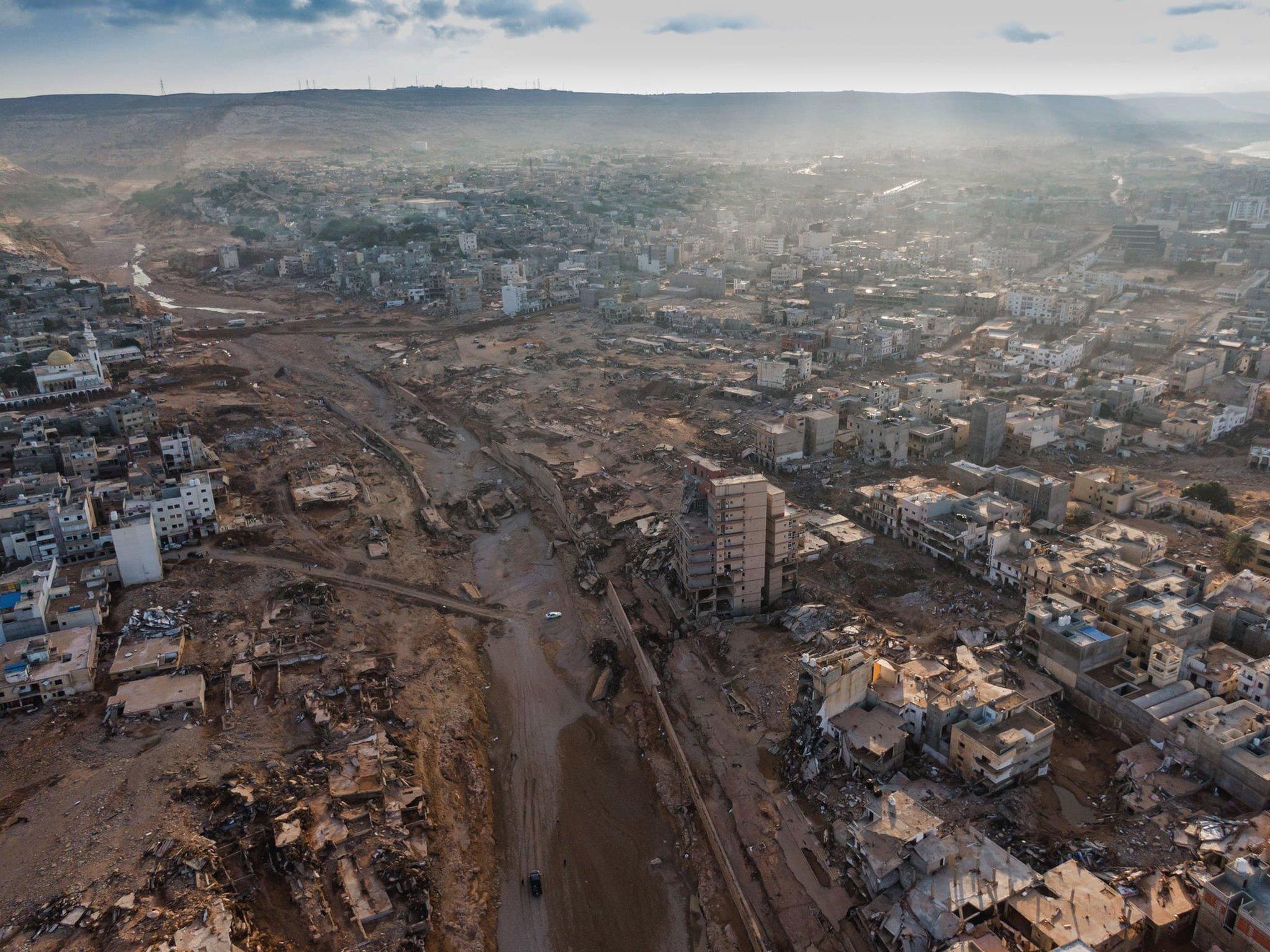
Those left homeless by the floods were in desperate need of aid
The BBC also spoke to the leader of an aid convoy sent from the west of the country, who recounted a similar story.
Abdel Monem Kheresha from Tripoli said his convoy was prevented from entering Derna.
"We were stopped before Derna's entrances and we were ordered by the 'Libyan National Army' [LNA, Gen Haftar's militia] to hand over our supplies," said Mr Kheresha.
The BBC has found that aid supplies gathered from such convoys were stored in two main warehouses supervised by the LNA, one in Benghazi and the other in al-Marj.
They were carefully inspected and then distributed by the LNA, an operation that took hours and even days.
It wasn't until Thursday 14 September, when the size of the catastrophe was apparent to the whole world, that a long queue of trucks carrying aid from around the country was allowed into the city.
Derna resident Al-No'man Ali told the BBC that they finally received food and aid supplies on the Friday after the disaster, after days of waiting.
After the protests began on 18 September, many local and international journalists in the city were forced to leave after coming under pressure from the authorities.
At the same time, communications in the city went down - many protesters believe they were deliberately cut to stop the demonstrations from escalating.
The lack of mobile phone signal and internet hindered the rescue and aid work in the city as the different international and local teams that were eventually allowed to operate there couldn't coordinate their work.
The BBC has approached the east Libyan authorities for comment on those allegations, but has not received a response.
Additional reporting by Ali Al Gomati, Mark Shea and Florence Dixon.
Related topics
- Published14 September 2023
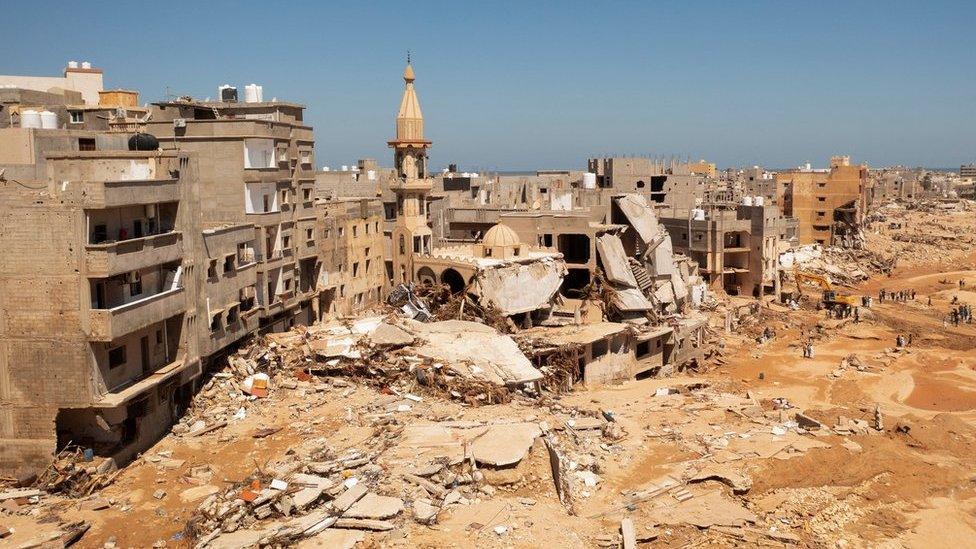
- Published14 September 2023
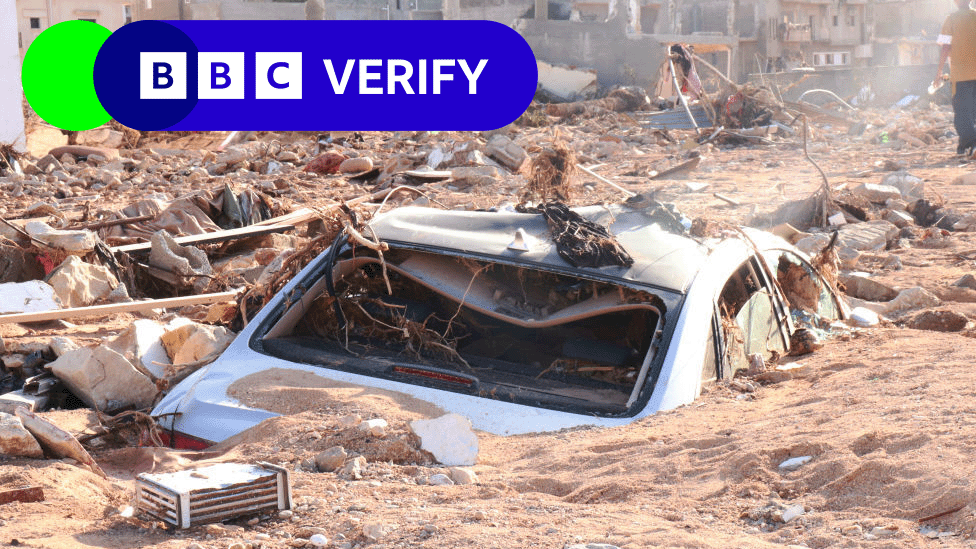
- Published17 September 2023
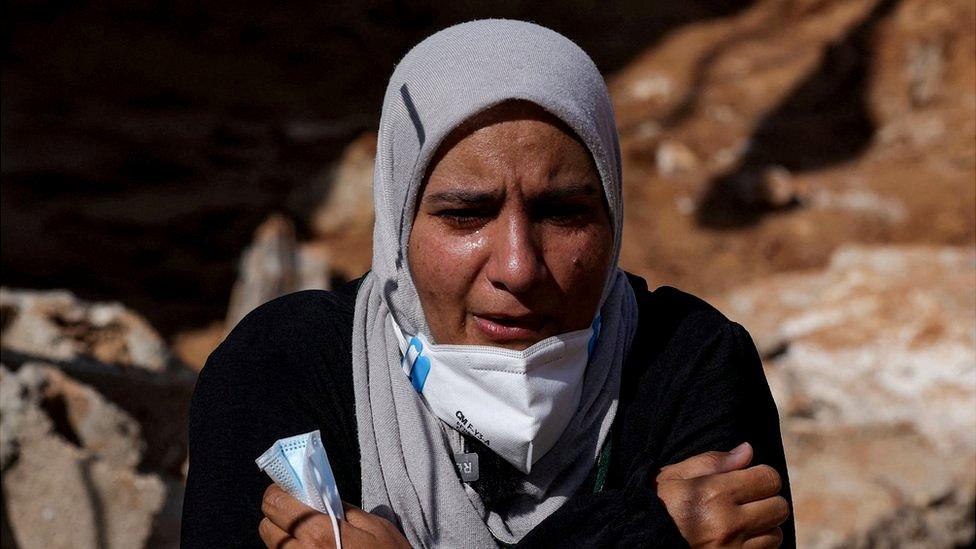
- Published16 September 2023
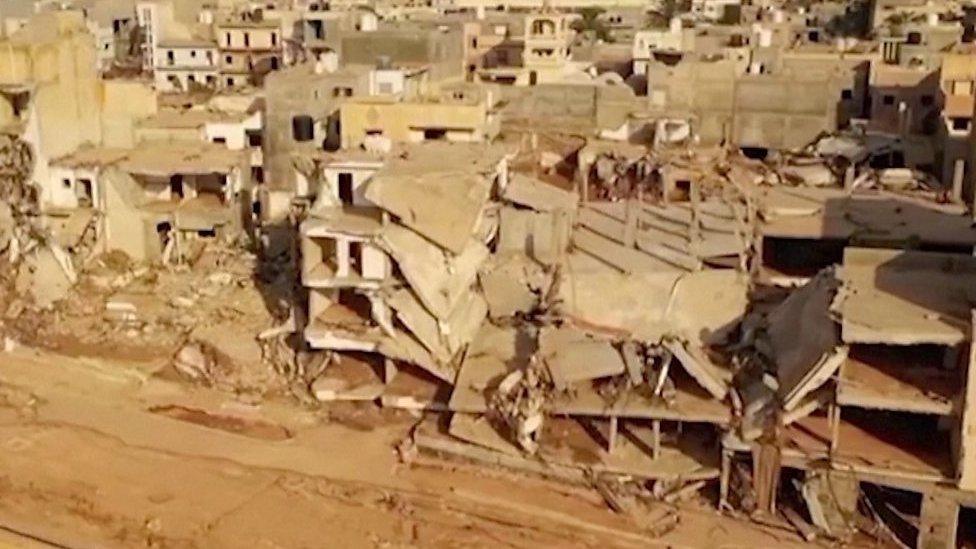
- Published15 September 2023
